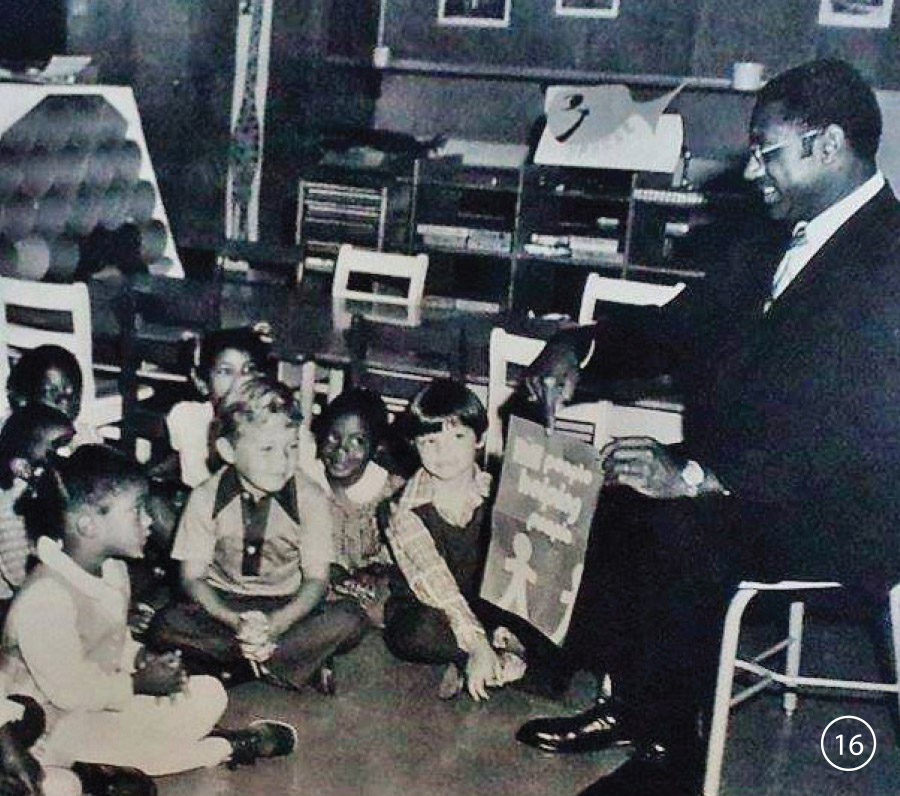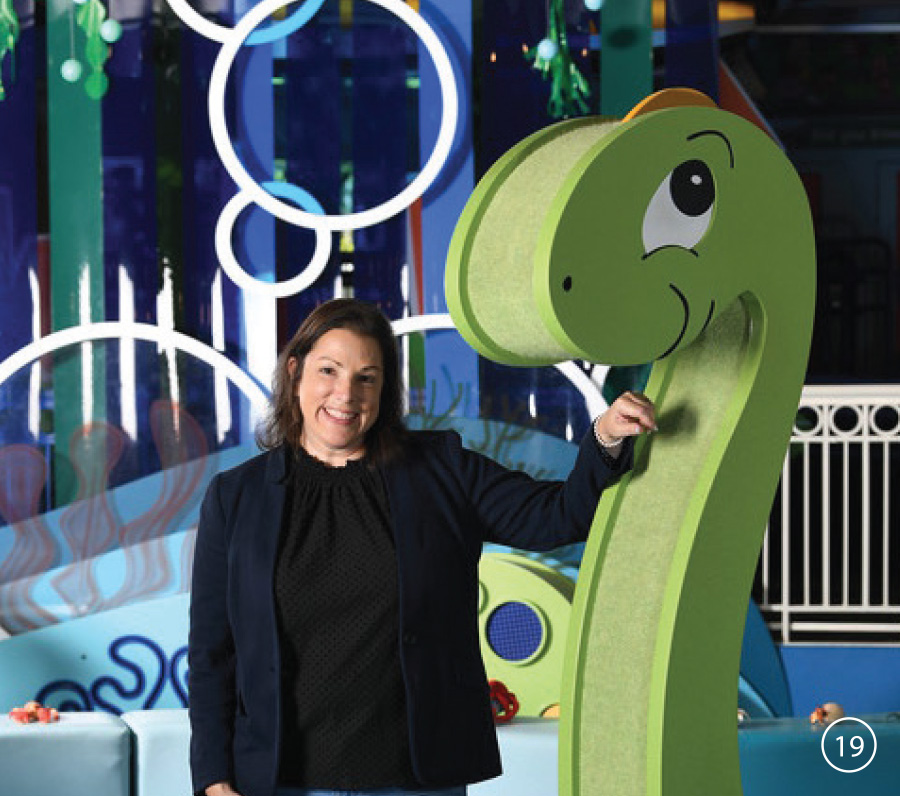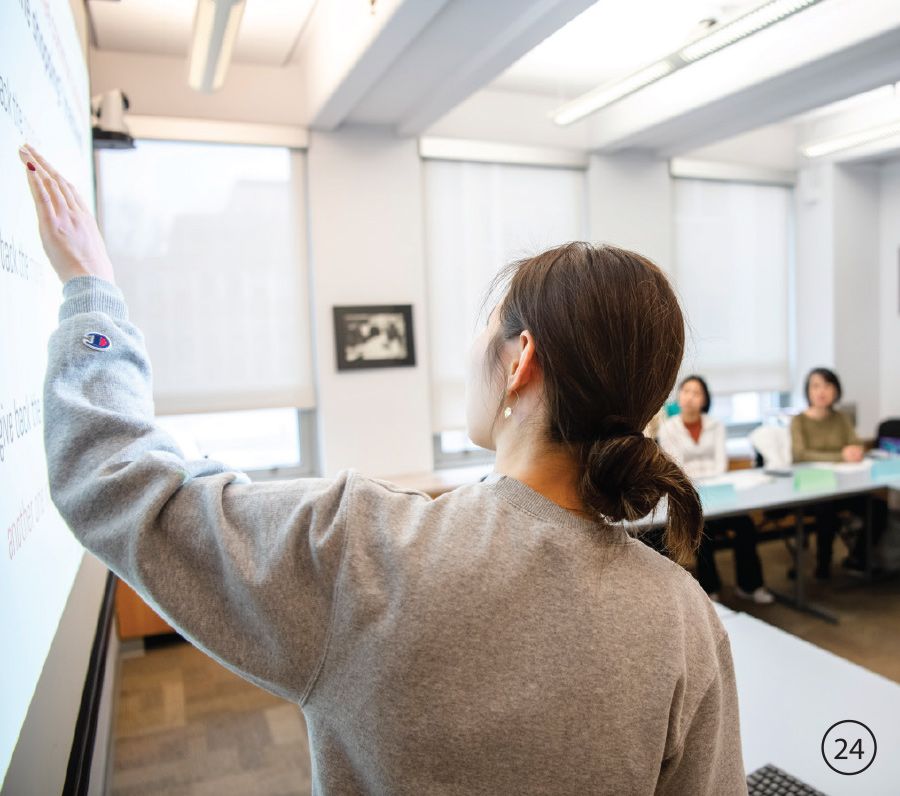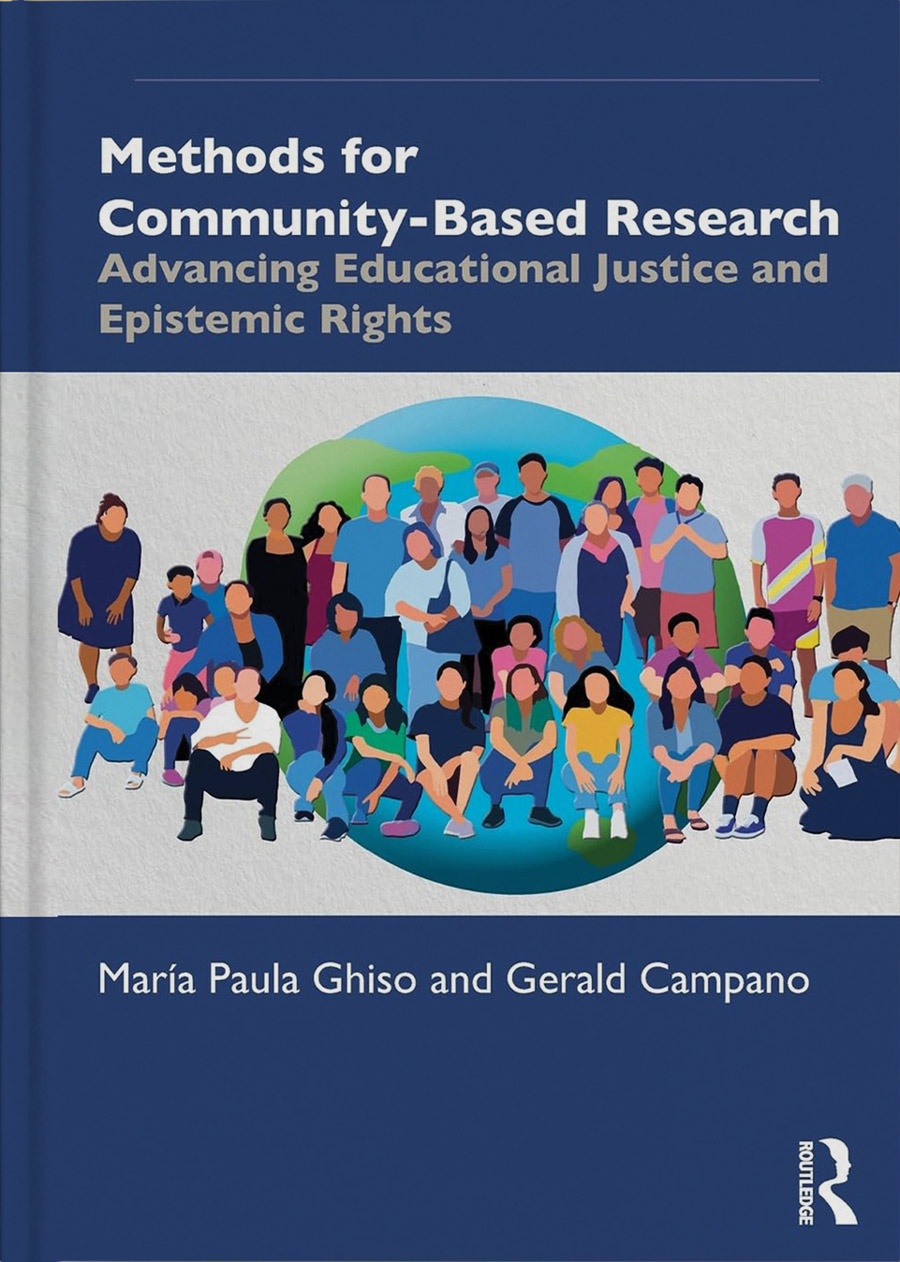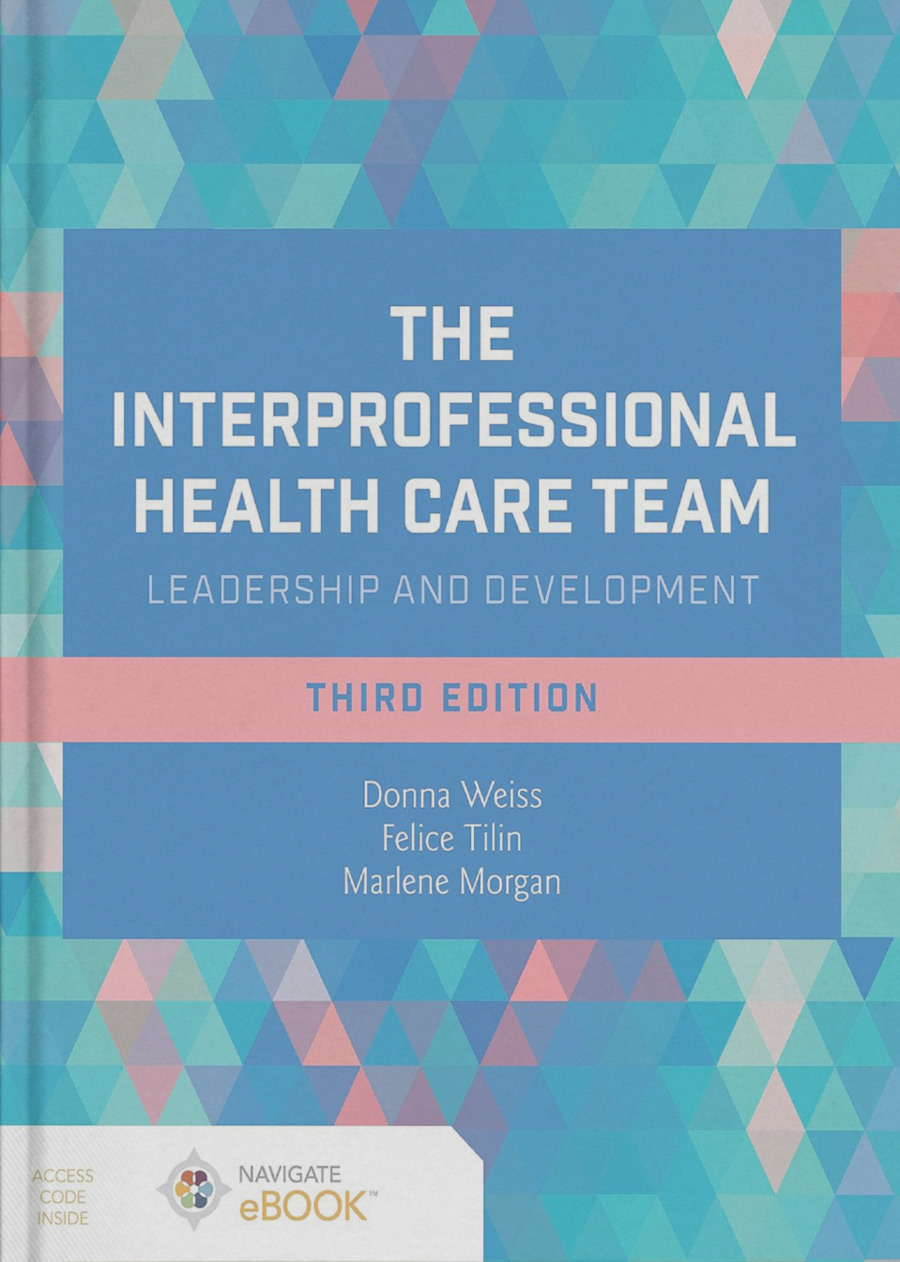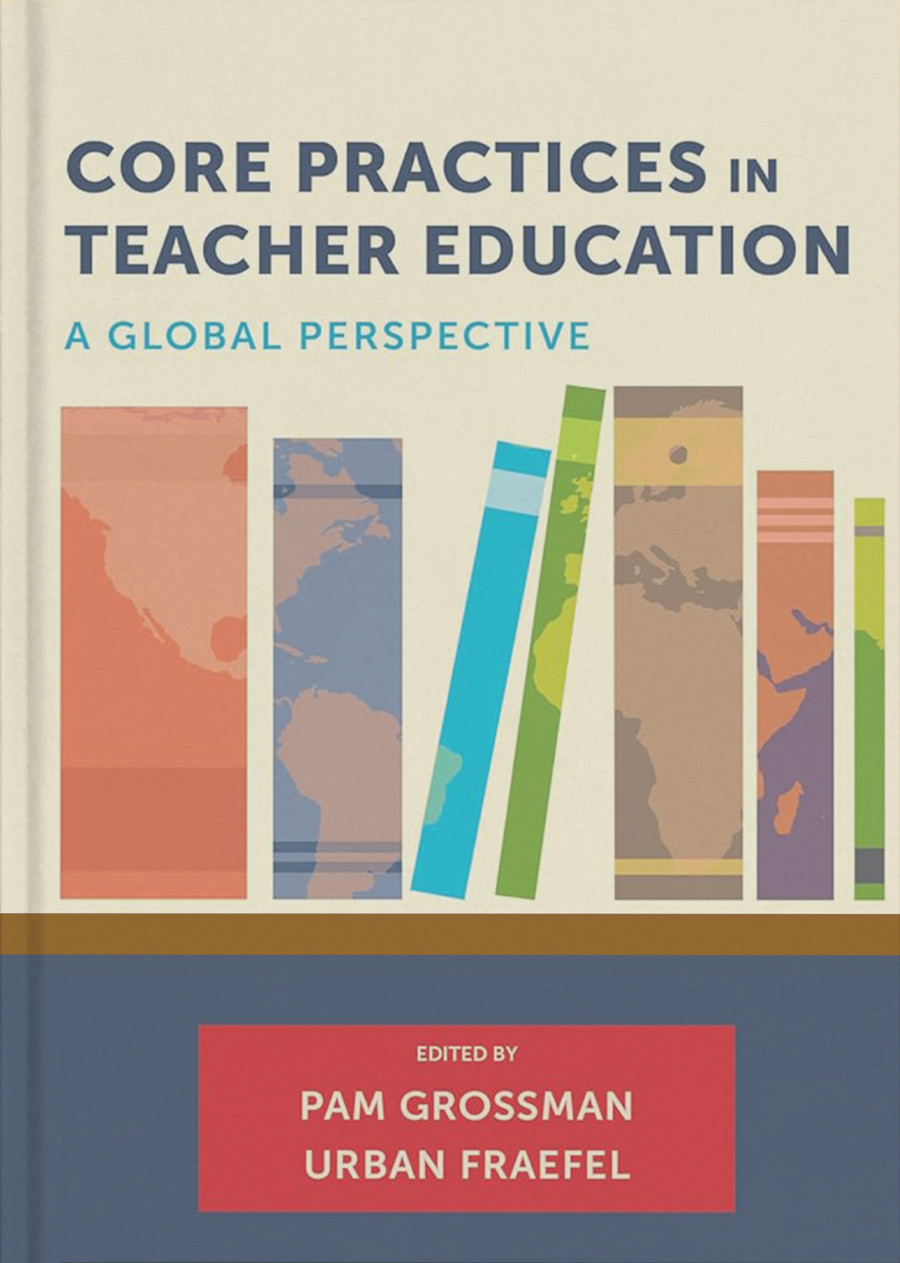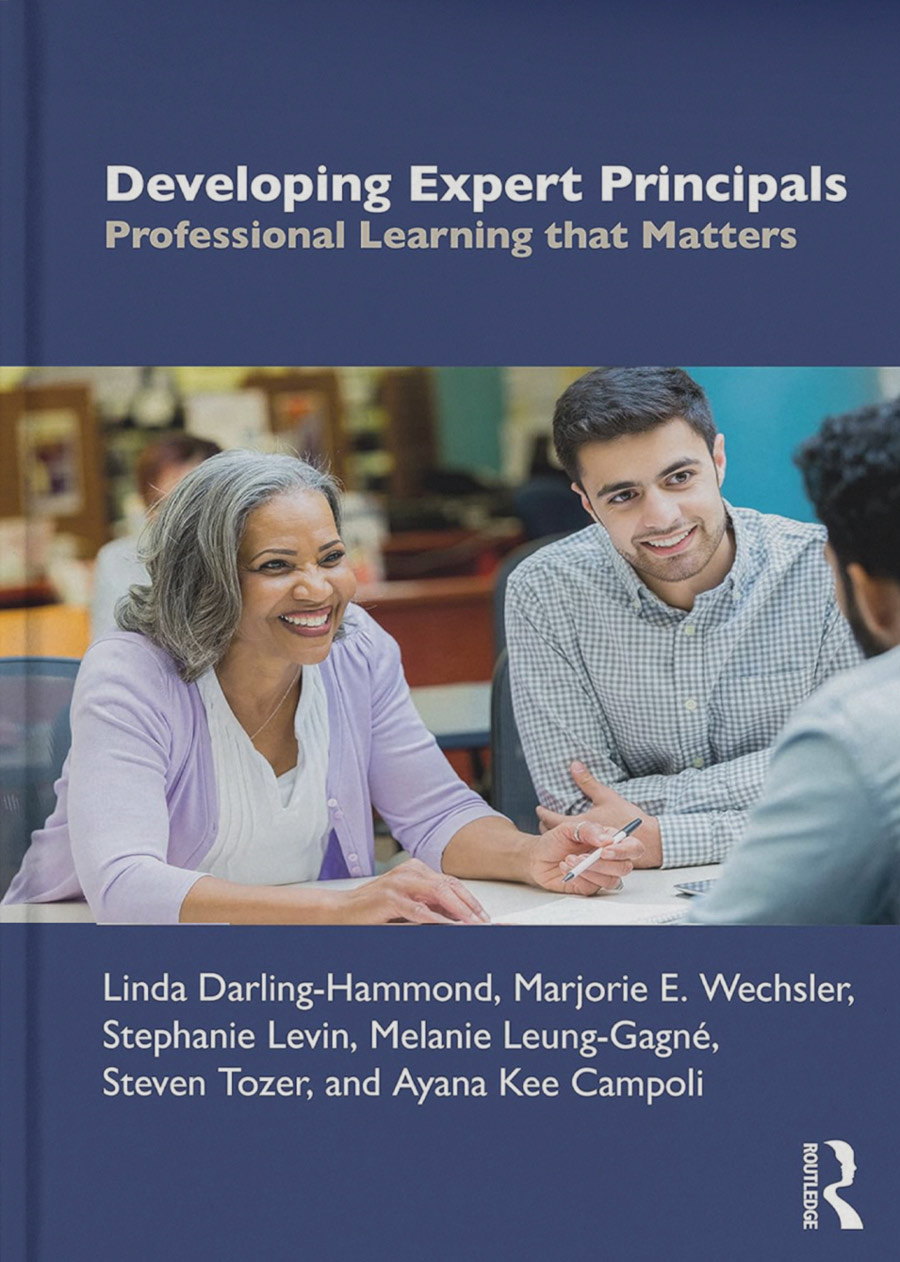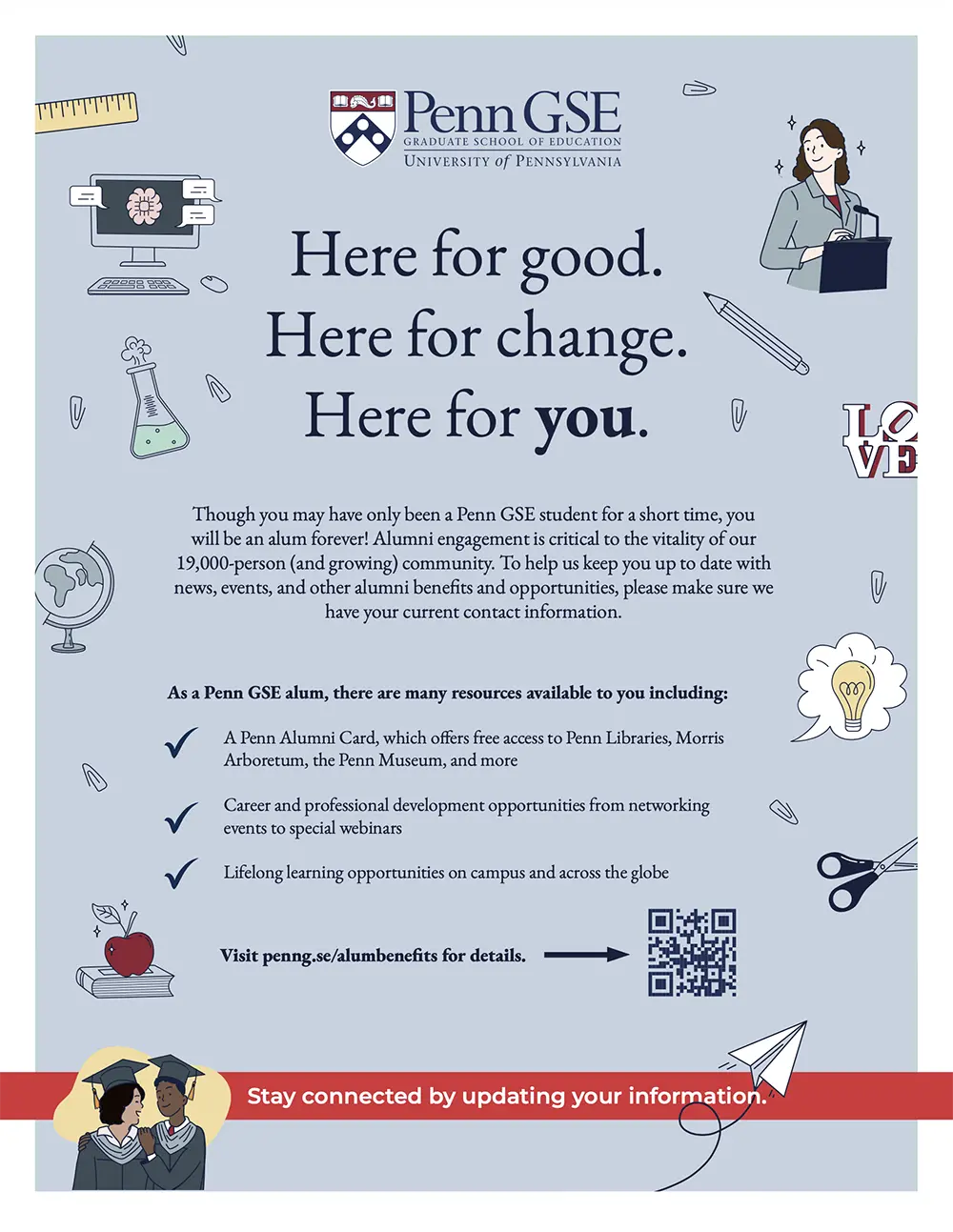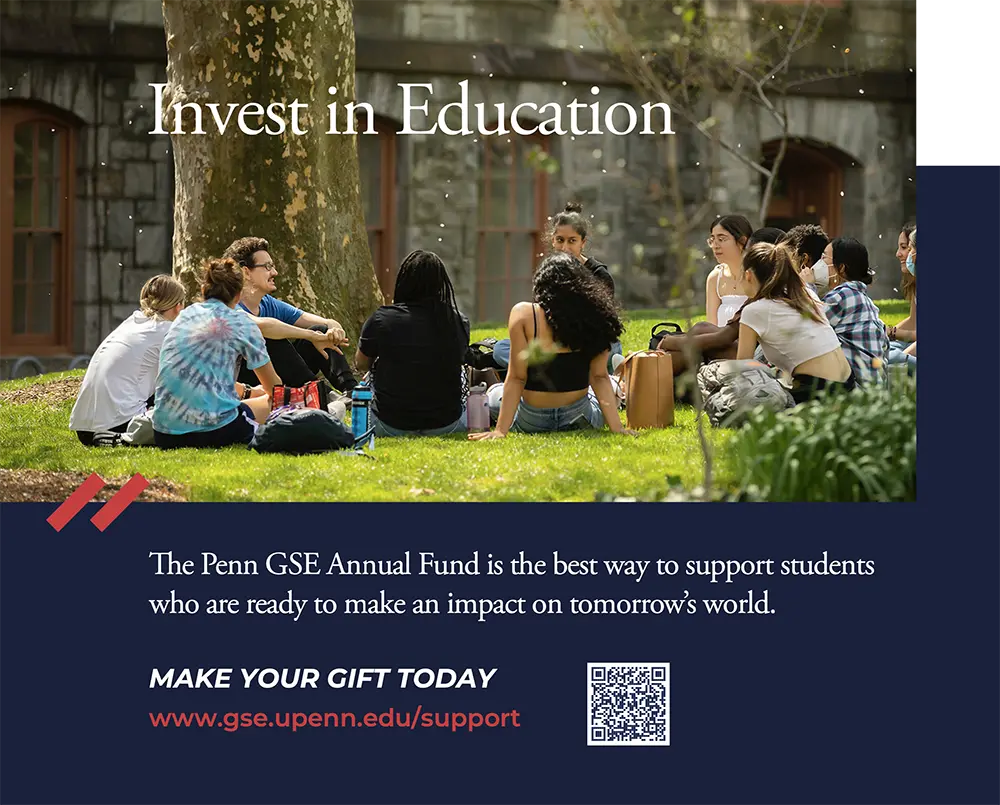Penn GSE Magazine Spring/Summer 2024


Contents





departments
/
News
Homeroom
Campus
Faculty Q & A
Noteworthy
Recess

Letter from the Dean
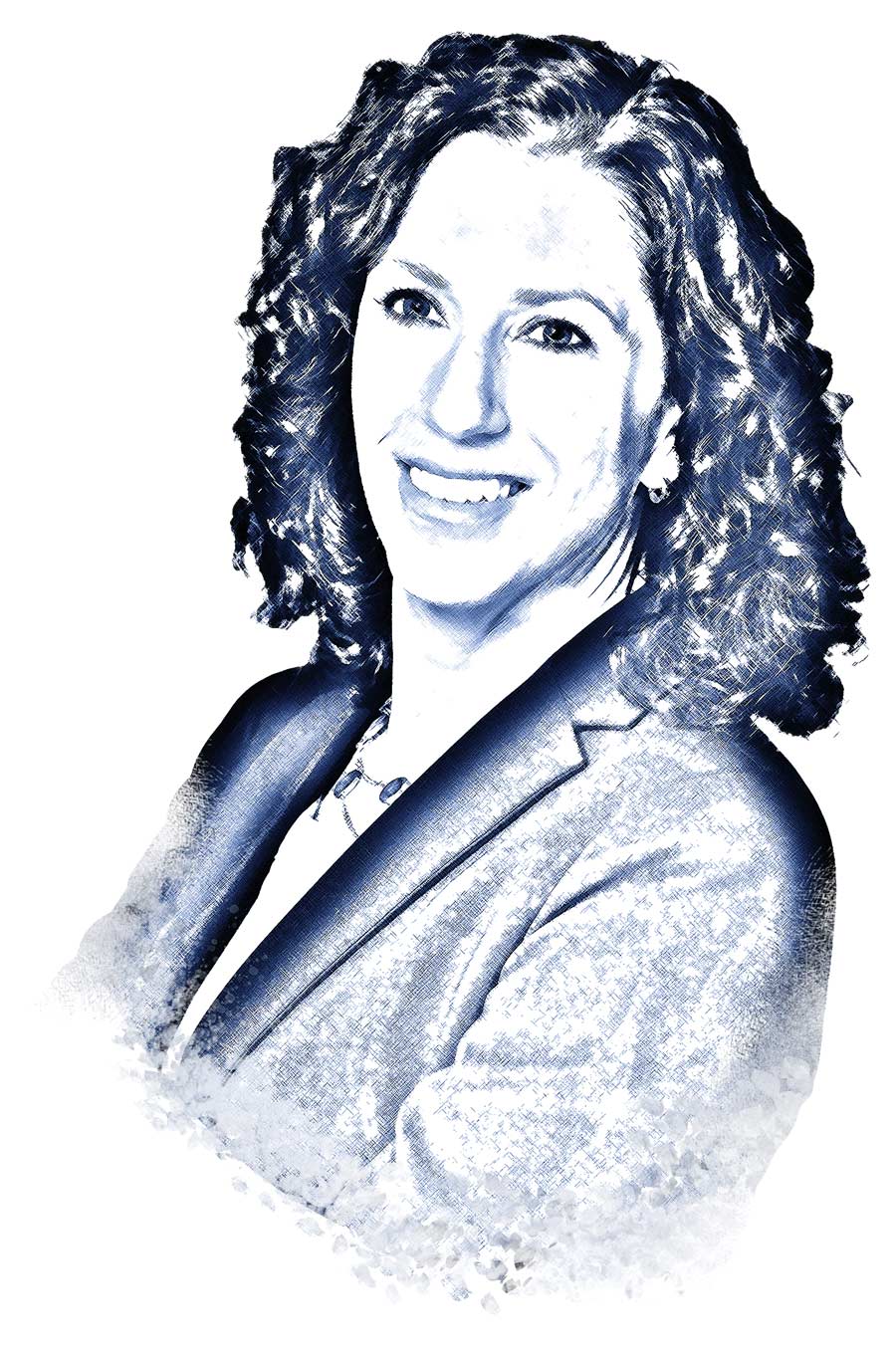
I can hardly believe it’s been a year since I began my tenure as dean of Penn GSE. I am thankful for the warm welcome I received from our incredible community of students and alumni, faculty and staff, partners and supporters. I am also grateful for the time many of you have taken to share your hopes for the School, and for the work we’ve already accomplished together in a short time.
It would be pointless, however, to pretend that this year has been easy at Penn, or at any higher education institution. We have experienced deep unrest and pain among many members of our Penn community, and we have worked here at GSE to ensure that all feel welcome, included, and valued. Through it all, we recognized that the work we do— educating future teachers, counselors, leaders, researchers, and changemakers—is more important than ever.
Penn GSE has a more than 100-year legacy of excellence in producing inspirational educators and vanguard research. And when I think about how we can continue that tradition while tackling the most pressing challenges of our day, I keep coming back to these four key areas for action:
1. Expand our engagement with our local, regional, national, and global communities: We can start local. Philadelphia is more than just our home; it is our partner. While Penn GSE is already facilitating partnerships with hundreds of schools and communities across the city, I want to advance this work via collaborative research initiatives with the school district. Similarly, we already work with and for communities throughout the Commonwealth, but I am eager to grow these collaborations that serve Pennsylvania’s students and educators.
Faculty Bookshelf
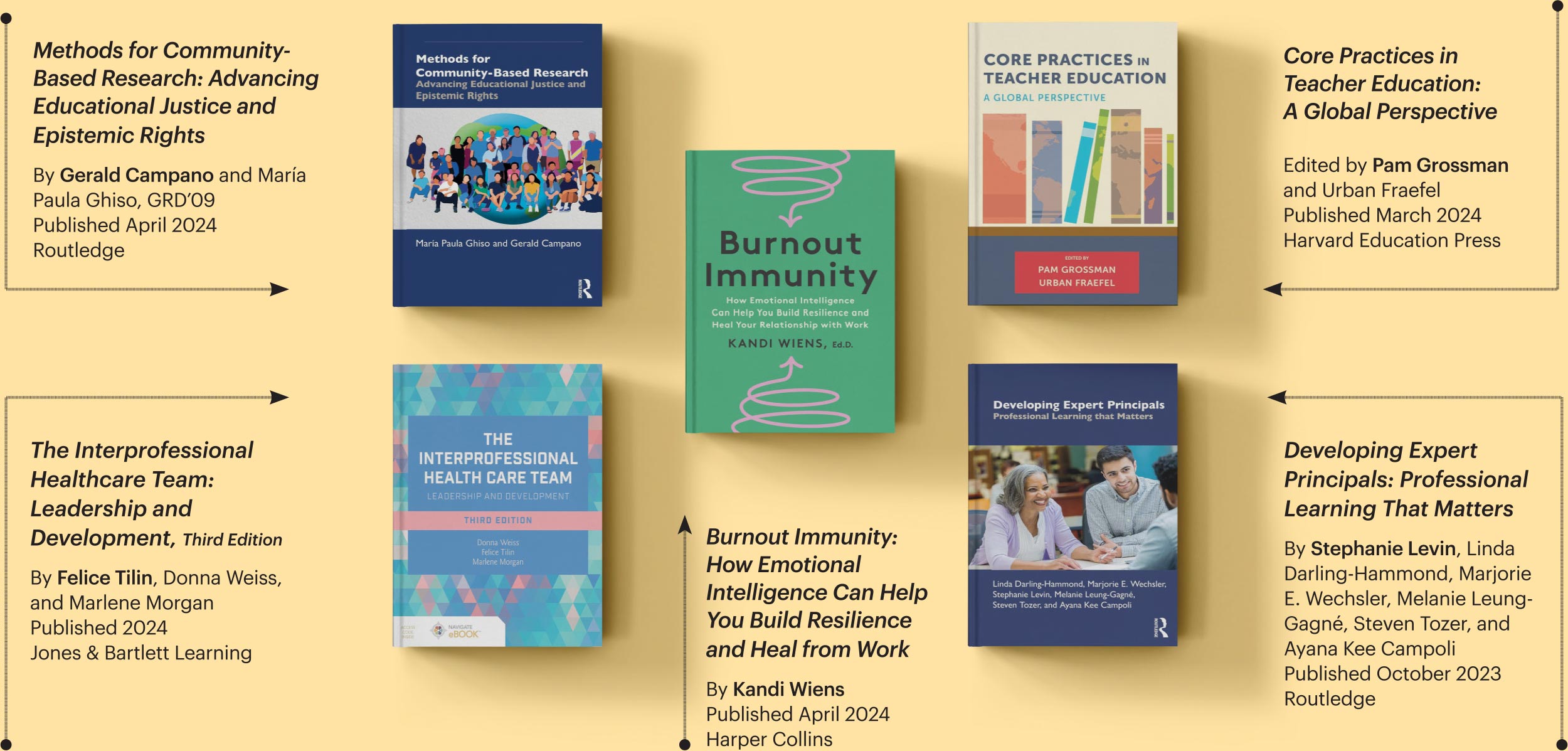
Published April 2024
Routledge
Published 2024
Jones & Bartlett Learning
Published April 2024
Harper Collins
Published March 2024
Harvard Education Press
Published October 2023
Routledge
HONORS & AWARDS
Peter Eckel’s (2) Inside Higher Ed article, “The Trouble with Strategy,” was one of the publication’s most-read stories on higher education administration in 2023.
Linda M. Pheng (3) won the 2023 American Educational Studies Association’s Taylor & Francis Educational Studies Award for the Best Paper of the Year for “What is Social Justice Research for Asian Americans? Critical Reflections Cross-Racial and Cross-Ethnic Coalition Building in Community-Based Educational Spaces.”
Howard C. Stevenson (4) was invited to give the Walter N. Ridley Distinguished Annual Lecture at the University of Virginia, held in March. The lecture is named for the first African American to receive a doctoral degree from a Southern, white college or university.
Dean Katharine Strunk (5) was named to Philadelphia Mayor Cherelle Parker’s transition team subcommittee for education. The dean was also asked to co-chair the Penn Presidential Commission on Countering Hate and Building Community with Vijay Kumar, dean of Penn Engineering.
Susan Yoon (6) was named a 2024 American Educational Research Association Fellow, a distinction that honors education researchers with substantial research accomplishments.
GRANTS
Michael Gottfried (9) received a grant from the Department of Education’s Institute of Education Sciences for his study “What Works to Reduce Student Absenteeism? A Systematic Review of the Literature,” which aims to bridge the research-to-practice gap by conducting a practitioner-oriented systematic review of absenteeism interventions.
Pam Grossman (10) and Sarah Kavanagh (11) received a $500,000 grant from the Hewlett Foundation for a landscape analysis of the teaching profession through September 2025.
Sharon Wolf (12) received a grant from the Abdul Latif Jameel Poverty Action Lab for her project “Evaluating the Impacts of the FastTrack Program in Nigerian IDP Camps.” A partnership with Aid for Rural Education Access Initiative (AREAi), a Nigerian organization that has developed a model to teach functional literacy and numeracy skills to out-of-school children in internally displaced people (IDP) camps, the project will evaluate the impacts of AREAi’s model on children’s academic and non-academic outcomes, as well as school enrollment and progress over the course of two years.



News Briefs
McGraw Center Symposium Encourages Education Leaders to Embrace Politics
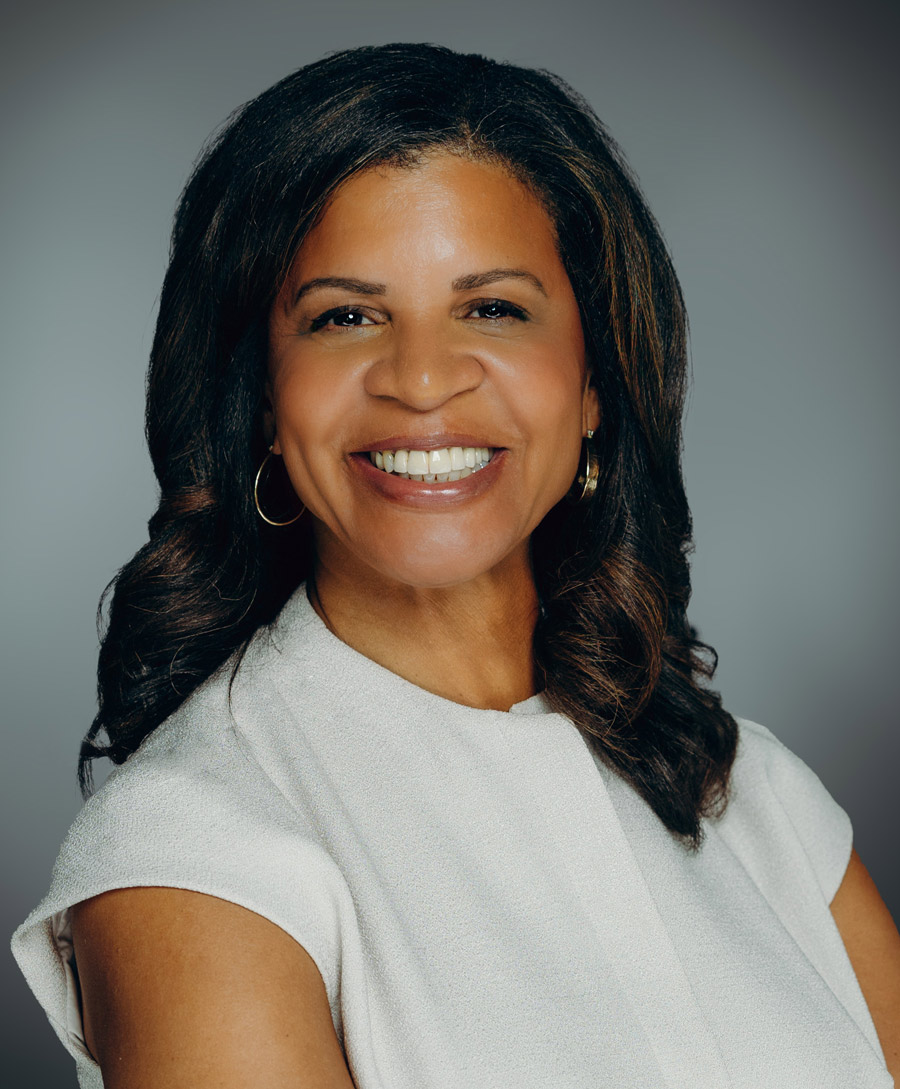
Photo credit: Joe McFetridge
“It’s the politics that takes people out, and a lot of that is self-inflicted,” Logan said. “Our intent with this symposium is to give education leaders the tools to navigate the political challenges better and, ultimately, improve the education experience for students.”
Dean Visits China
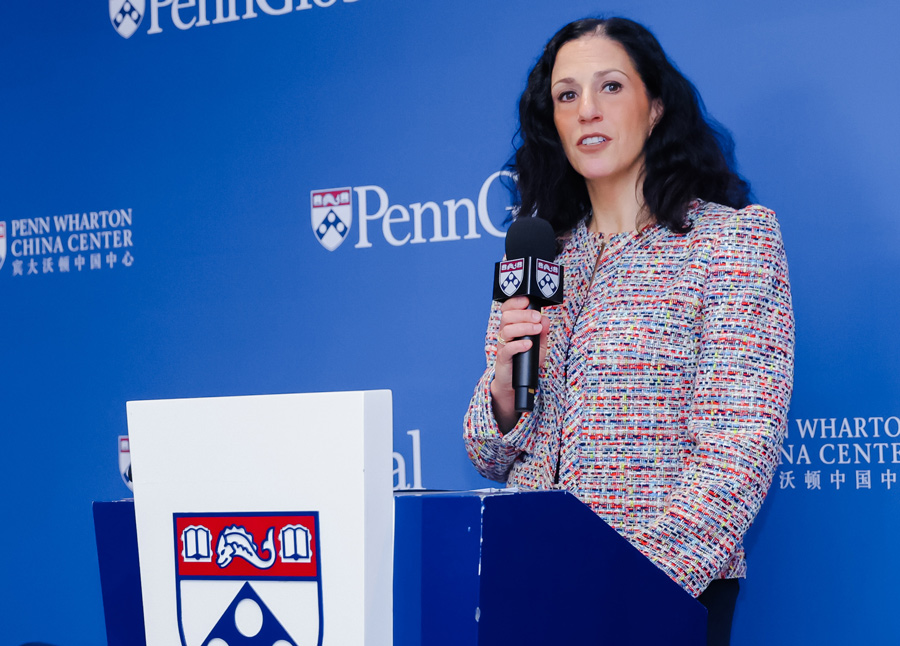
McGraw Center Symposium Encourages Education Leaders to Embrace Politics

Photo credit: Joe McFetridge
“It’s the politics that takes people out, and a lot of that is self-inflicted,” Logan said. “Our intent with this symposium is to give education leaders the tools to navigate the political challenges better and, ultimately, improve the education experience for students.”
Dean Visits China

Policy Corner
The Headline
Student Homelessness on the Rise
 The Story
The Story
Student housing insecurity has acute consequences for school attendance, which itself has ramifications in academic and socioemotional outcomes. The latest NCHE numbers show that roughly 52 percent of students experiencing homelessness were chronically absent (defined as missing one out of every ten days of school), which has been shown to correlate with lower test scores, course grades, eagerness to learn, and social engagement, as well as higher drop-out rates.
Reconnecting with Their Roots


“My creative work, I see it as a different type of research,” said Coello. “Poetry, I see as internal research.”
They have published three poetry collections—2019’s self/ser, 2021’s faith/fe, and the latest, HAMPI—excavating different parts of their identity. The first two books presented their poems in both Spanish and English, but in their newest publication, they have also added Quechua, which they began learning only two years ago as part of their exploration of their Indigenous ancestry.
HAMPI was born of an intersecting set of questions about Coello’s health and their family. Researching their Indigeneity gave them answers about both, helping them to understand where they come from and where they are going.
Homeroom
But that’s OK. It means she can identify issues and opportunities that other people more comfortably ensconced in those worlds might overlook. Plus, she likes to rise to a challenge.
“I always say to people, ‘Don’t ever let anyone tell you that you can’t do something,’” said Goodwin. “That has been the ethos of my career.”
She started out at NASA, straight out of American University, working as a systems engineer. It was part of her job to integrate systems on the International Space Station (ISS).
“I was able to use the role of technology and data to serve our astronauts better,” she said. “A cornerstone of my work was, ‘What could we do with the data to help the crew breathe and perform their spacewalks more efficiently?’ And then, ‘How could we launch the payload—the high-pressure gas systems—on the shuttle program?’ Technology was an enabler of the mission, and my purpose was using it to discover how we can serve people.”
Though she would later return to NASA as its CIO, in between she worked in the energy and healthcare industries, using her STEM background to undertake pioneering work with data analytics, cybersecurity, and artificial intelligence. But once she started graduate school, she became fascinated by a new frontier: the neuroscience of learning.
She developed research—which is still ongoing—that maps the neural patterns of the brain to best understand how to deliver the most engrossing models of learning. Now, in her current roles as both affiliated faculty at Columbia University and the founder of two startups, she leverages that work to help educators better serve students.
Our Alums in Their Spaces
Our Alums in Their Spaces
But that’s OK. It means she can identify issues and opportunities that other people more comfortably ensconced in those worlds might overlook. Plus, she likes to rise to a challenge.
“I always say to people, ‘Don’t ever let anyone tell you that you can’t do something,’” said Goodwin. “That has been the ethos of my career.”
She started out at NASA, straight out of American University, working as a systems engineer. It was part of her job to integrate systems on the International Space Station (ISS).
“I was able to use the role of technology and data to serve our astronauts better,” she said. “A cornerstone of my work was, ‘What could we do with the data to help the crew breathe and perform their spacewalks more efficiently?’ And then, ‘How could we launch the payload—the high-pressure gas systems—on the shuttle program?’ Technology was an enabler of the mission, and my purpose was using it to discover how we can serve people.”
Though she would later return to NASA as its CIO, in between she worked in the energy and healthcare industries, using her STEM background to undertake pioneering work with data analytics, cybersecurity, and artificial intelligence. But once she started graduate school, she became fascinated by a new frontier: the neuroscience of learning.
She developed research—which is still ongoing—that maps the neural patterns of the brain to best understand how to deliver the most engrossing models of learning. Now, in her current roles as both affiliated faculty at Columbia University and the founder of two startups, she leverages that work to help educators better serve students.
A View from Campus
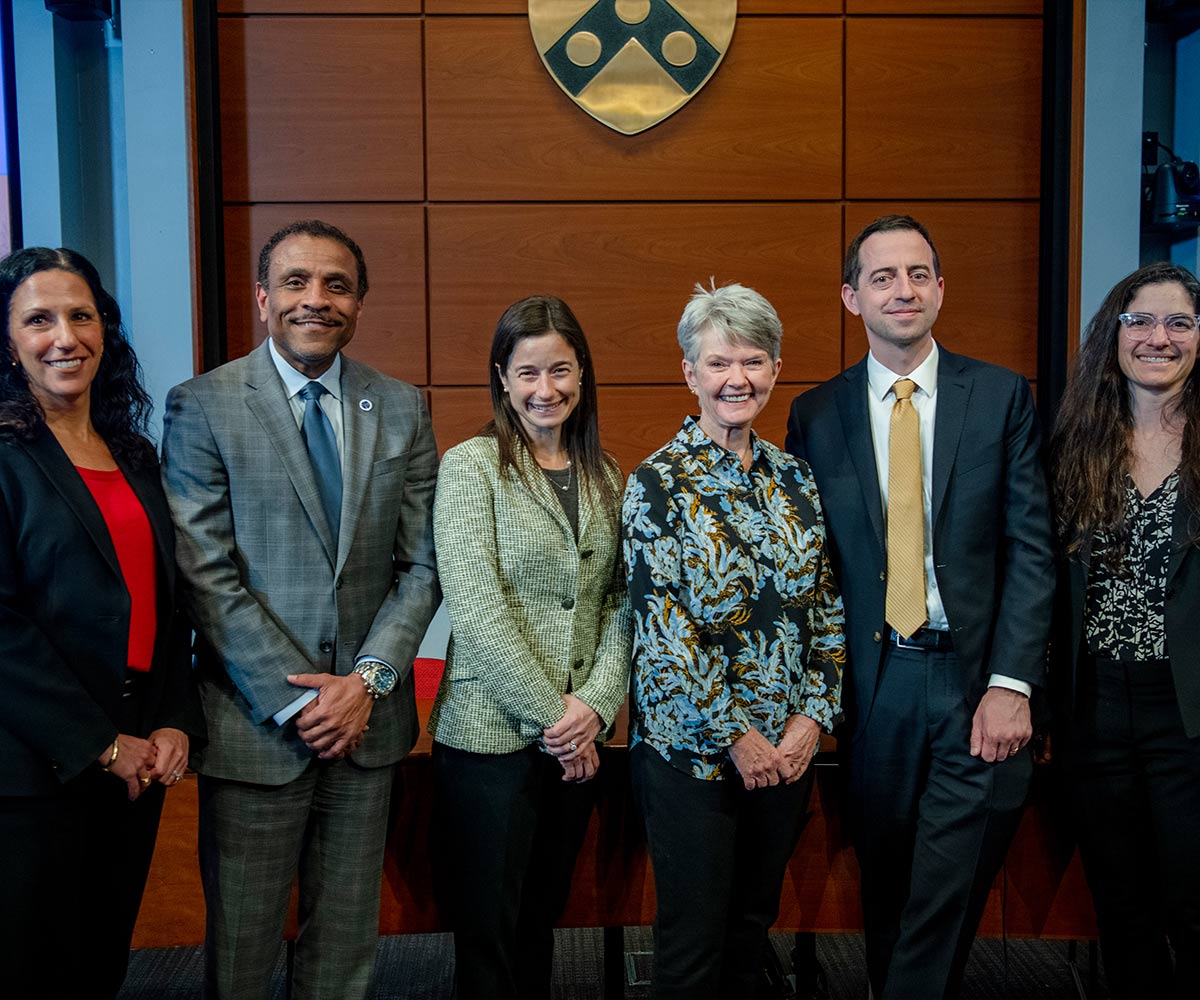
SPOTLIGHT ON SCHOOL FUNDING
GRADUATING THE NEXT GENERATION
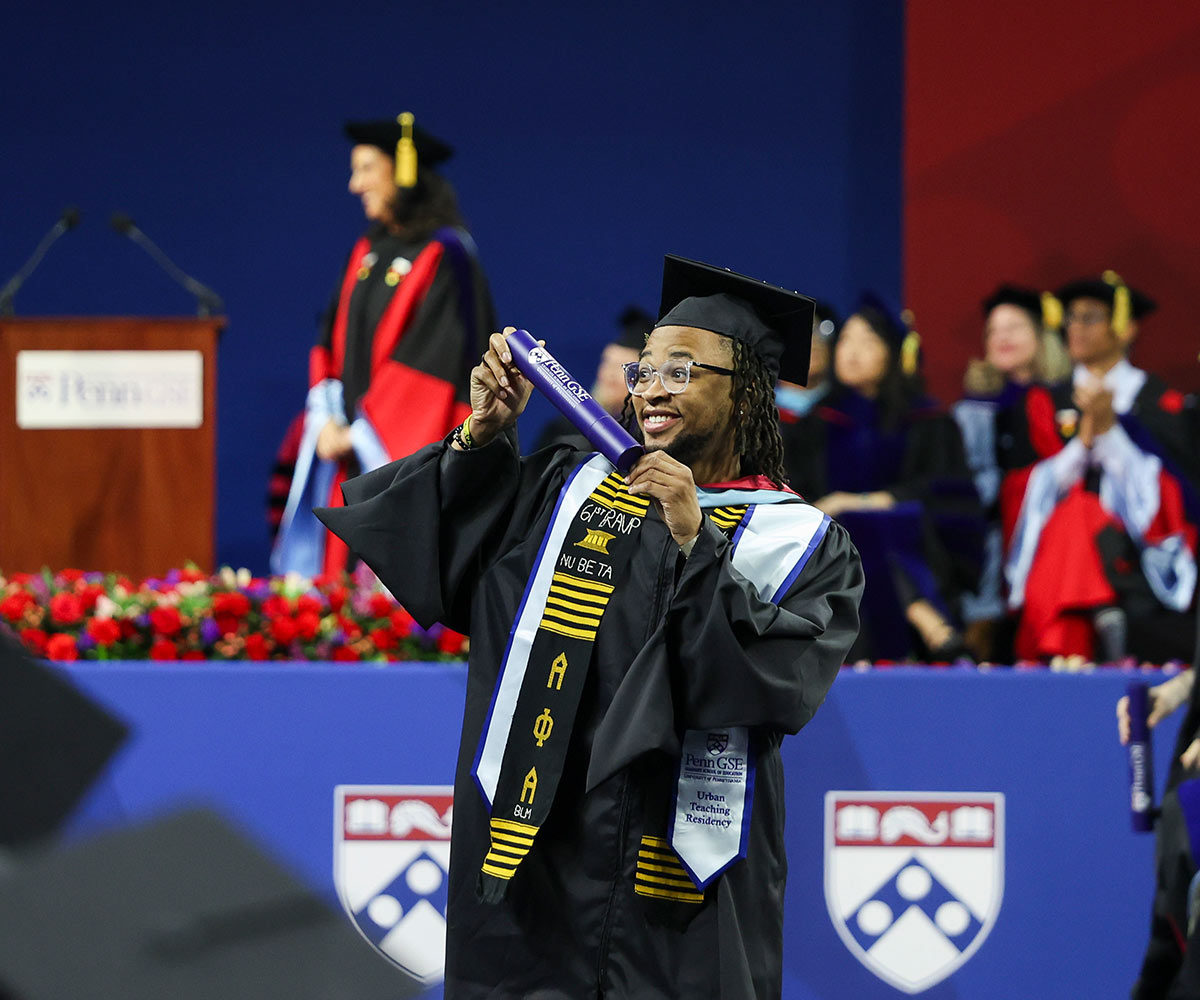
The Critical Cultivation of Media Literacy
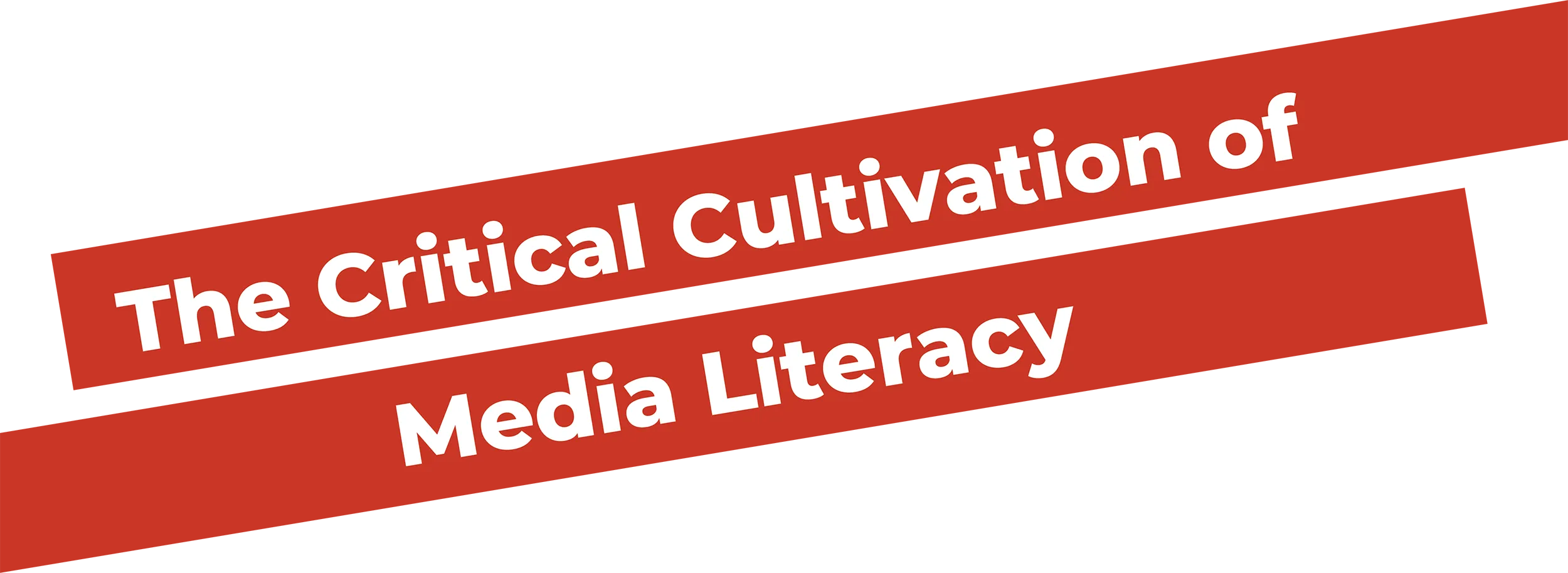
he time was normally set aside for science class. But, “for the next 30 minutes,” teacher Mia Blitstein, GED’02, told the 18 middle school students at Global Leadership Academy, “this is going to be a newsroom.”
Students at the West Philadelphia charter school scrambled over notes and prepared for interviews for their publication, The Healthy Globe. Instead of a class with their regular teacher, they were going to have what they call “newspaper time.”
Blitstein, who got her master’s in elementary education from Penn GSE, works with Healthy NewsWorks, a nonprofit that that teaches health and media literacy to students as young as first grade.
Faces of Philanthropy

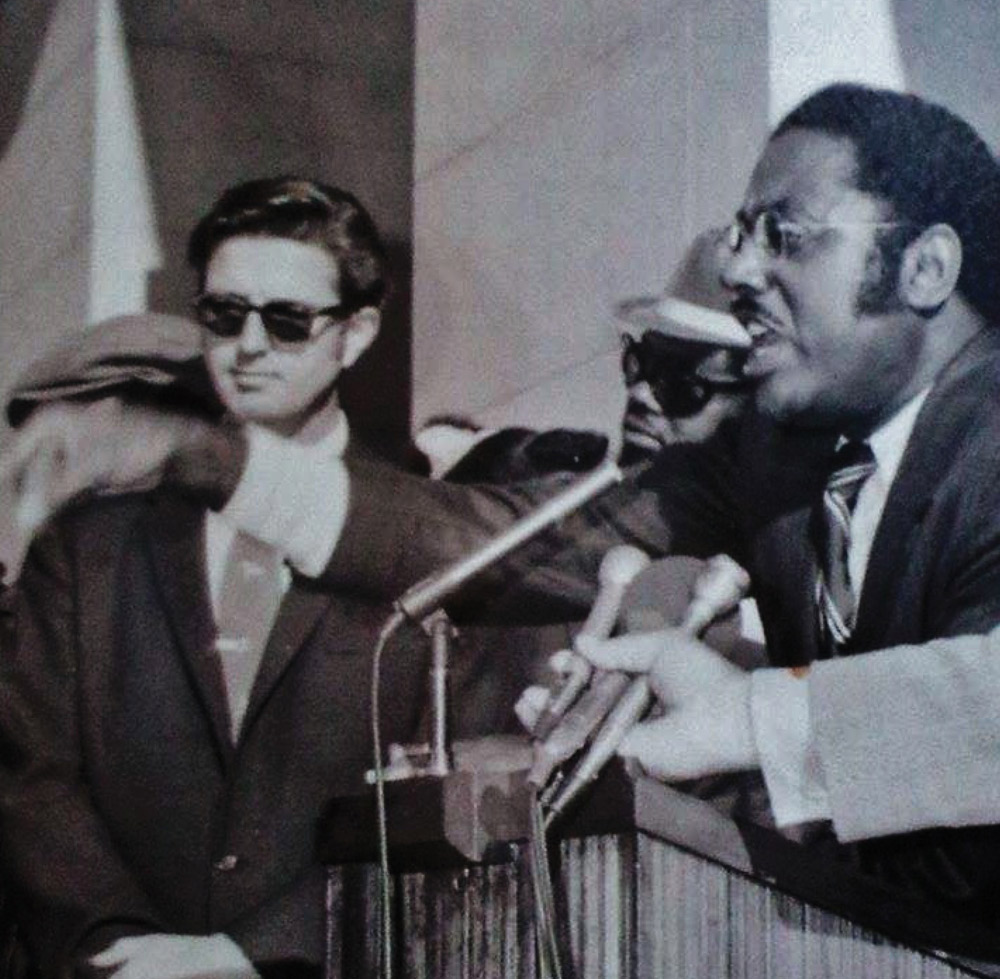
here is an old Quaker saying: “Let your life speak.” It means that the way you live should be exemplary of your deepest held beliefs. Though most members of the Penn community are Quakers in name but not religion, they let their lives speak in many ways: by living their values, working towards a more just and equitable world, and supporting the students coming up behind them.
Marcus Foster, GED’49, GRD’72, is one such alum whose life has spoken across generations, reverberating well beyond his own too-brief lifetime. The Penn GSE alum and former University Trustee was a dedicated educator, transformative leader, and the first Black superintendent of a major urban school district in the US whose life was tragically cut short by bullets from an extremist’s gun in 1973. [More below.]
In life, his impact could be felt in the improvements he made in some of Philadelphia’s most overlooked, under-resourced—and, not coincidentally, Black—schools, in the lives of the students he changed and the educators he inspired, and in his innovative school fundraising concepts. (He created America’s first education foundation, a model that now exists across 2,500 districts nationwide, according to EdSource.)
The Museum
as a
Classroom
passion for education to teach
learners of all ages through exhibits,
outreach, and special collections.
hile at a flea market more than three decades ago, Randy Hayward, GRD’11, came upon a Black ragdoll. It was handmade, thought to be from the ’30s or ’40s.
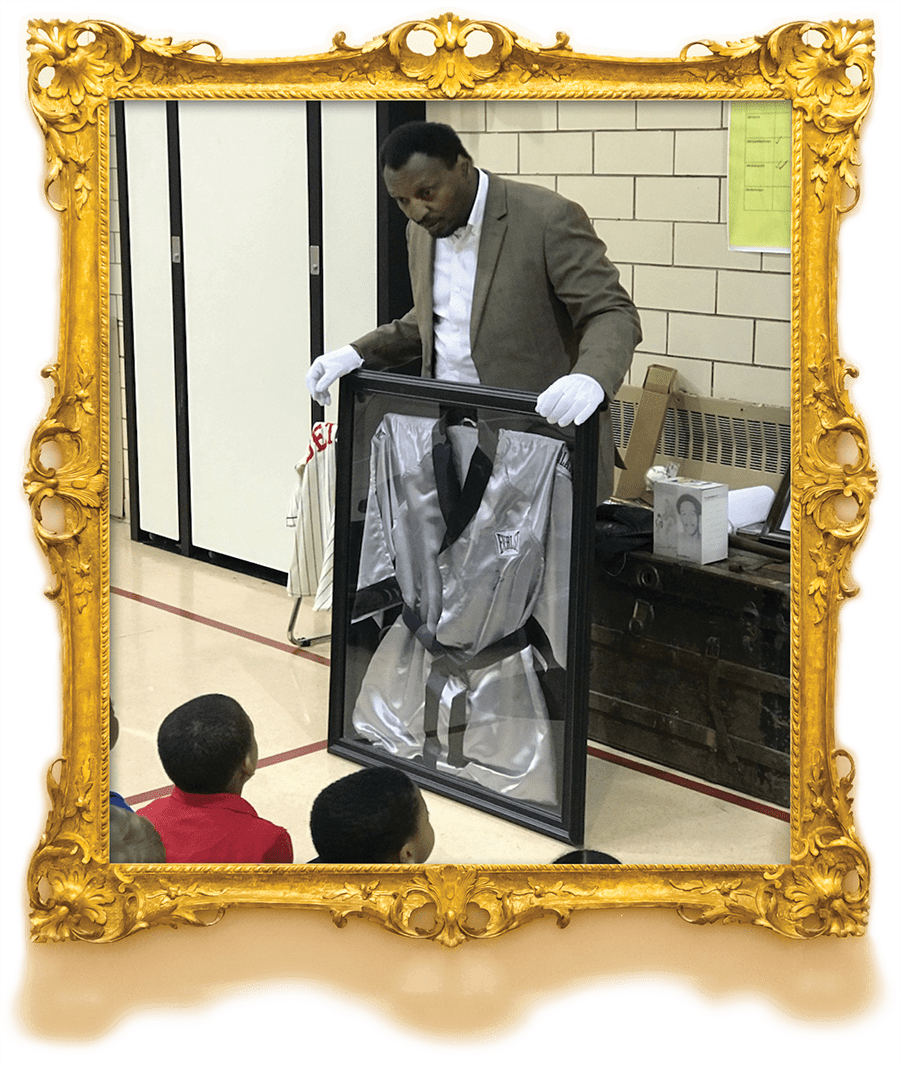
Fascinated, he bought it. And so began his dedicated pursuit of Black Americana. Two thousand artifacts later, the Detroit native is curator of the Traveling Black History Museum he founded in 2019 when he left the Detroit-based Marvin L. Winans Academy of Performing Arts, where he was superintendent and lead principal. But his passion for education is never far. Hayward spends his time researching historical pieces and sharing his discoveries with schoolchildren, college students, and others.
“I bring in these artifacts, and for the first time you’re holding a piece of history,” he said—with “proper gloves, of course,” he added. “You’re transported to that place, and then I get to tell a story that’s inviting to hear.”
The collection, spanning the antebellum era to the present, includes shackles that once bound enslaved people; a rare medallion from the National Ex-Slave Mutual Relief, Bounty, and Pension Association; a boxing robe signed by Muhammad Ali; and signed tennis rackets from Serena and Venus Williams. His trove also pays homage to Black motorcycle racers and Hayward’s own enthusiasm for the sport—he has a bevy of antique bikes. “My artifacts,” he said, “really speak to the American experience.”
From English Learners to English Teachers

A Penn GSE initiative provides an opportunity for TESOL students to practice their teaching with language learners across the University and around the world.
hen Chih-Hung “Gordon” Cheng moved to Philadelphia in 2022 so his wife could pursue her graduate studies in organizational dynamics at Penn, he had been learning English for years—in Taiwan, where he grew up, instruction started in seventh grade. But the Mandarin speaker still found himself nervous using his English among native speakers.
“When I first came here, I was truly afraid to step out. I was afraid to pick up the phone, to talk to people in person,” said Cheng. “I would doubt myself when people would ask me, ‘Can you say that again?’ or ‘What did you say?’ It made me think my English was awful.”
But a class he’s been taking since January has given him newfound confidence in his proficiency. That course is part of the Practical English for Daily Living (PEDAL) program at Penn GSE, which offers free English classes to adult language learners of all levels taught by students in GSE’s Teaching English to Speakers of Other Languages (TESOL) master’s program.
Protecting Against Burnout
Kandi Wiens’ latest book aims to help readers build resilience to stress and heal their relationship to work.
health scare led Kandi Wiens, GRD’16, to her life’s work. Almost a decade ago, while working a high-stress consulting job, earning her doctorate from Penn GSE’s Chief Learning Officer (CLO) program, and juggling her responsibilities as a mom to three young children, she had a hypertensive emergency during a routine check-up. While she was tapping away at her phone, still conducting work from inside her doctor’s office, a nurse was checking and rechecking her blood pressure, not believing the numbers she was seeing in a seemingly healthy young woman.
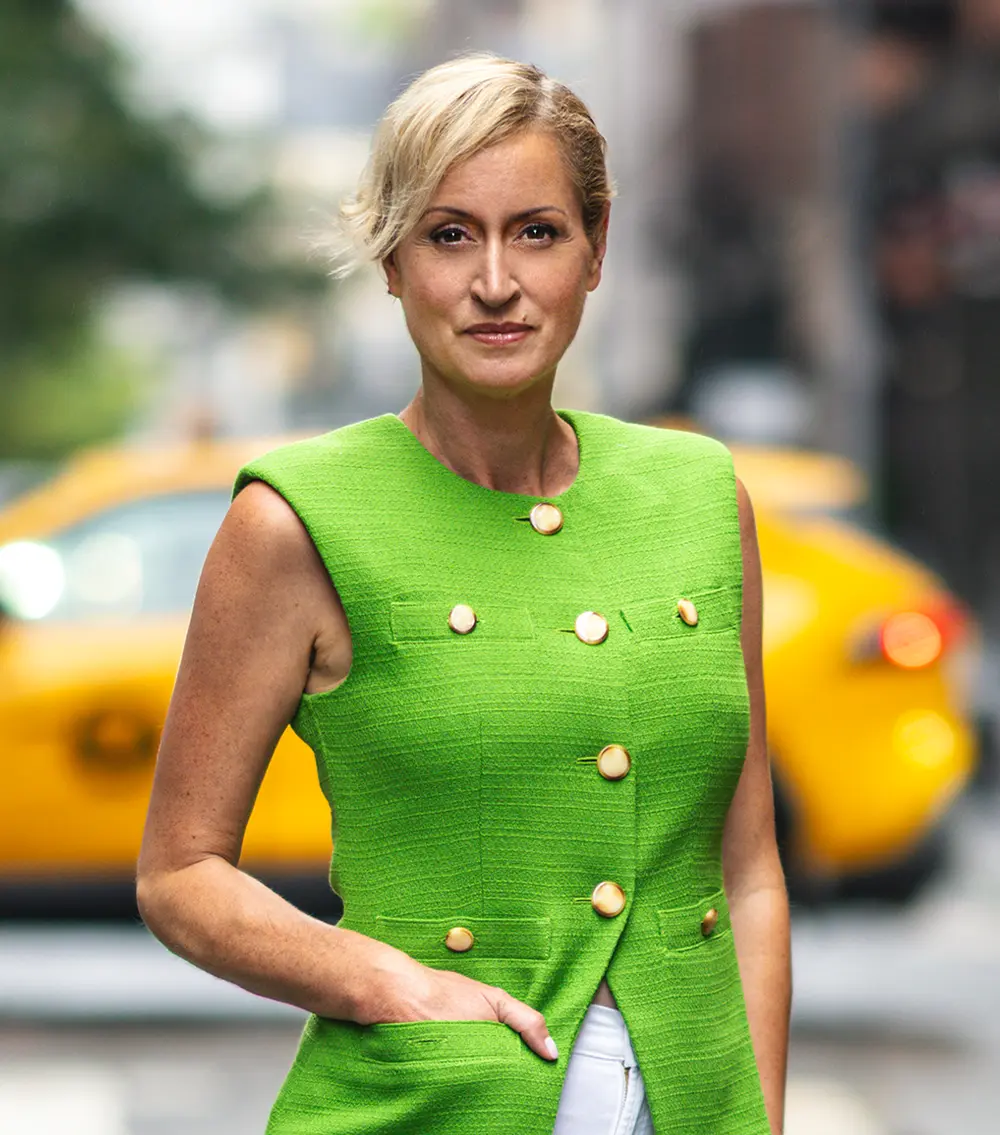
Photo credit: Robbie Quinn
“I could have had a stroke. I could have had a heart attack,” said Wiens. “I could have died right then and there.”
Instead, she had a wake-up call. Stress was literally killing her, and she needed to find a way to manage it better. In the week that followed, during her doctor-mandated rest, one of the things she pondered was why the stress had impacted her so profoundly. Many of her Penn GSE classmates were also busy working parents with high-stress jobs, but their blood pressure readings hadn’t made medical professionals do a double take. What were they doing differently? She decided to make that question the heart of her doctoral dissertation, exploring stress and burnout.
Alumni Notes
-
At Penn, all alumni have an affiliation—a series of letters and numbers following their name to indicate their degree, school, and year of graduation. A master’s degree from Penn GSE is represented as GED and an education doctorate as GRD. A philosophy doctorate from any school at Penn is represented as GR. An undergraduate degree offered by the School of Education until 1961 is represented as ED. The two numbers following the letters represent the year in which that degree was completed.
 Denotes alumni authors whose latest book is featured on the alumni bookshelf.
Denotes alumni authors whose latest book is featured on the alumni bookshelf.1960s
- Katie Barney, GED’69, published her sixth cookbook, The Enchanting World of Food (Conduit Press), which covers the history of the cuisines, dining etiquette, and recipes from more than 200 countries.
- James Fritts, GED’63, wrote the tenth edition of Essentials of Illinois School Finance (Illinois Association of School Boards).
- Eric White, GED’67, GRD’75, is emeritus executive director of the division of undergraduate studies and emeritus associate dean of advising at Penn State. He is the first author of the academic advising chapter in the recently published sixth edition of Rentz’s Student Affairs Practice in Higher Education (Charles C. Thomas Publisher). His academic career is highlighted in an article, “A Place for Academic Advising Scholars: Dr. Eric White at the Division of Undergraduate Studies,” in The Mentor: Innovative Scholarship in Academic Advising.
1970s
- Michael Bentley, GED’72, delivered a series of programs on climate change, biodiversity loss, green burial, and connecting children to nature through Virginia Interfaith Power & Light.
- Lawson Bowling, GED’77, retired from teaching history at Manhattanville College last July after 39 years, though he is still teaching part-time. Both the male and female Scholar-Athlete of the Year awards have been named in his honor.
- Judy Buxton, GED’71, D’81, is in private practice as a dentist and teaches at Penn Dental Medicine.
- Jim Coe, GED’74, retired after a 44-year career as a high school teacher and administrator in both the private and public sectors in San Mateo, CA.
- Anne Flick, CW’74, GED’76, earned her doctorate in clinical psychology, finished a postdoctoral program in psychoanalysis, and is now in private practice in New York City, seeing children, adolescents, and parents.
- Michael Kirsch, C’68, GED’72, GRD’74, is enjoying retirement. He is a docent, leading second-graders through Horace Greeley’s home; active in two historical societies; and supervises the ongoing activities at a local schoolhouse, which has existed since the 1850s.
- Robert London, C’69, GED’71, published his fourth book, Introducing Nonroutine Math Problems to Secondary Learners: 60+ Engaging Examples and Strategies to Improve Higher-order Problem-Solving Skills (Routledge).
- Carol Parlett, GED’78, owned and operated Key Lime Cafe in Saint Michaels, MD, for 20 years. Now back in Philly, she serves on the board of Mid-Shore Council on Family Violence and is writing a psychological thriller.
- Eric Scoblionko, C’76, GED’76, taught AP American history at Metairie Park Country Day School for two years before returning to Penn to work in annual giving. He then bought a run-down camp in Maine and spent the next 25 years building Camp Wekeela into a premiere institution. He writes, “Hung up my lanyard and returned to the classroom in Boca Raton, where I substitute teach at three area private schools.”
- Hermine Stein, C’77, GED’77, has her own medical practice and mentors future primary care physicians as part of her role as core faculty at Einstein Montgomery Family Medicine Residency.
- Shelley Wepner, GED’73, GRD’80, dean emeritus and professor at Manhattanville University, published the paper, “A conceptual framework for understanding presidential longevity,” in the Journal of Research on the College President.
1980s
- Lois Kohn-Claar, C’88, GED’88, became the board president of The Jewish Education Project, a national nonprofit that focuses on innovative programs and thought leadership to meet the need for relevant and meaningful Jewish education.
- Albert Giovenella, GR’87, is retired but a contributing member of the division of geriatric medicine at Penn. He is currently researching “What Knowledge is Most Important in Health Care and Biotechnology” by studying more than 500 biotech and pharmaceutical companies from 2008 to the present day to determine how their knowledge and research techniques drive their success.
- Bonnie Botel-Sheppard, CGS’74, GED’76, GRD’81, writes, “I am so fortunate to have a loving family, dear friends, and Penn Literacy Network colleagues who are the centerpiece of my life.”
- Kathleen Lydon Varley, GED’77, GR’82, worked as a psychologist, adjunct faculty at Delaware County Community College, in private practice, and as a storyteller. She is currently teaching autobiographical writing at Main Line School Night. She is following up her mystery novel, Off Center, with a new memoir about her grandfather and his wife, Papa and Eva and Me.
- Hilary Walmsley, GED’84, created a coaching program to help people make desired changes in their diet and is attending a course on existential wellness coaching.
6 Tips
for Explaining War to Children
n an ever-changing world, parents and educators are too often faced with explaining complex and challenging events to children. And perhaps nothing is more difficult to explain than violence, particularly war and armed conflict.

An expert in child and adolescent development who has been instrumental in developing and overseeing school-based mental health programs, Richardson explains that adults must help bridge the gap, offering support and understanding as school-age children navigate and process world events in a healthy and constructive way.
“When it comes to issues like [war], sometimes we can find it hard to connect the dots between a child’s behavior and the events unfolding in the world around them,” she said. “This is about being in tune with and understanding, developmentally, the ways in which these stressful situations might manifest for children.”

The Penn GSE Magazine is produced by the University of Pennsylvania Graduate School of Education, 3700 Walnut Street, Philadelphia, PA 19104. Reproduction of these articles requires written permission from Penn GSE. ©2024 by the Trustees of the University of Pennsylvania. Please contact Penn GSE at (215) 573-6623 or alumni@gse.upenn.edu for references or to update your address.
Katharine Strunk
Dean
Laura Tepper
Publisher
Rebecca Raber
Editor
Editorial Board:
Umar Aly, GED’24
Sylvia Davis, C’20
Amanda Ellis
Melanie Hieronimus
Jane L. Lindahl, GED’18
Jennifer Moore
Alexa Pecunies, GED’24
Kat Stein
Designed by Bold Type Creative
Copyedited by Colleen Heavens
Cover Art: Jane Puttanniah
Jeffrey S. McKibben, W’93, Chair
Deborah L. Ancona, C’76, GED’77
Olumoroti G. Balogun, GED’19, GRD’20
Brett H. Barth, W’93
Allison J. Blitzer, C’91
Harlan B. Cherniak, W’01
Jolley Bruce Christman, GED’71, GR’87
Webster B. Chua, W’04
Samara E. Cohen, C’93, W’93
Beth S. Ertel, W’88, WG’92
Evan S. Feinberg, W’09
Jeffrey L. Goldberg, W’83, WG’89
Patricia Grant, GED’01, GRD’04
John A. Henry
Heather Ibrahim-Leathers, W’95
Andrew H. Jacobson, WG’93
Douglas R. Korn, W’84
Gregory A. Milken, C’95
Andrea J. Pollack, C’83, L’87, GED’17
David N. Roberts, W’84
Francisco J. Rodriguez, W’93
Molly P. Rouse-Terlevich, C’90, GED’00
Michael J. Sorrell, GRD’15
Navin M. Valrani, W’93, GED’18, GED’22, GRD’23
Steven M. Wagshal, W’94

